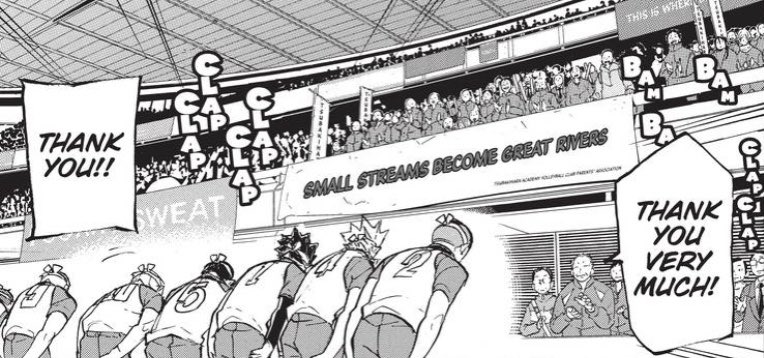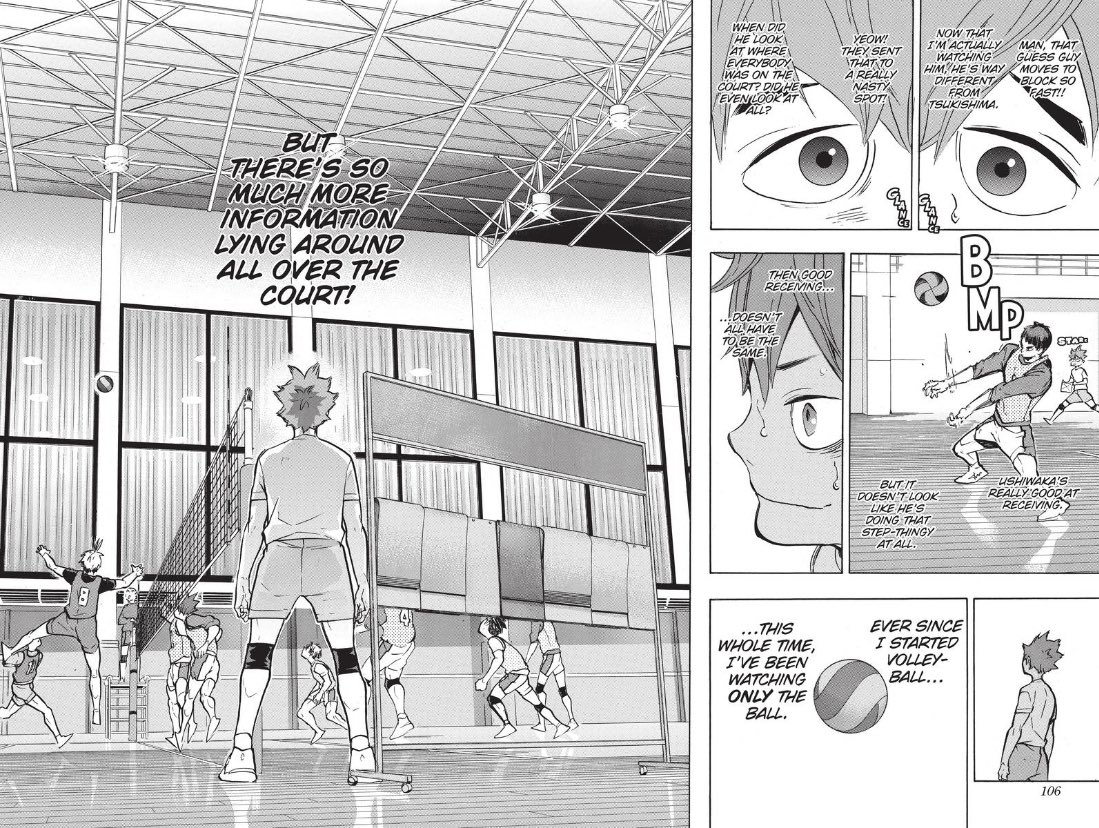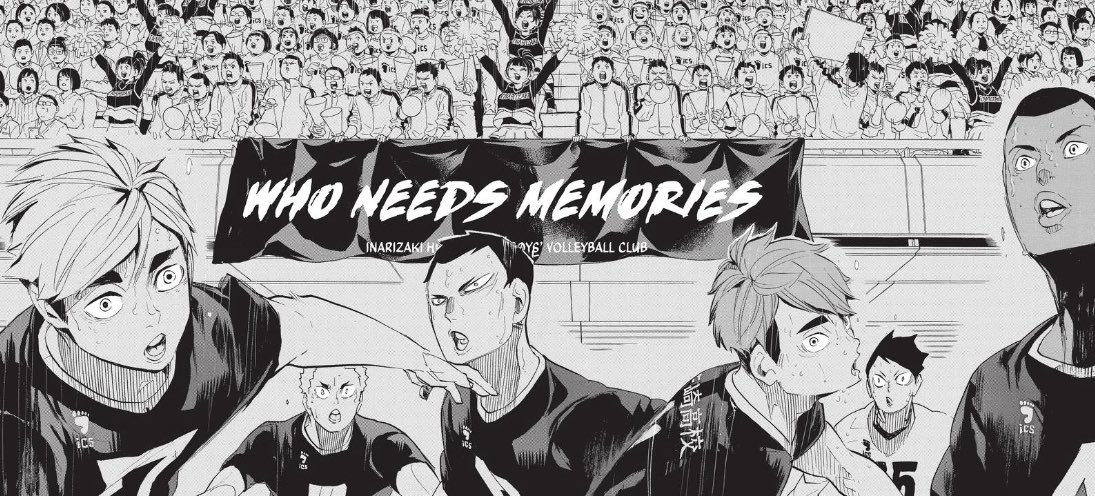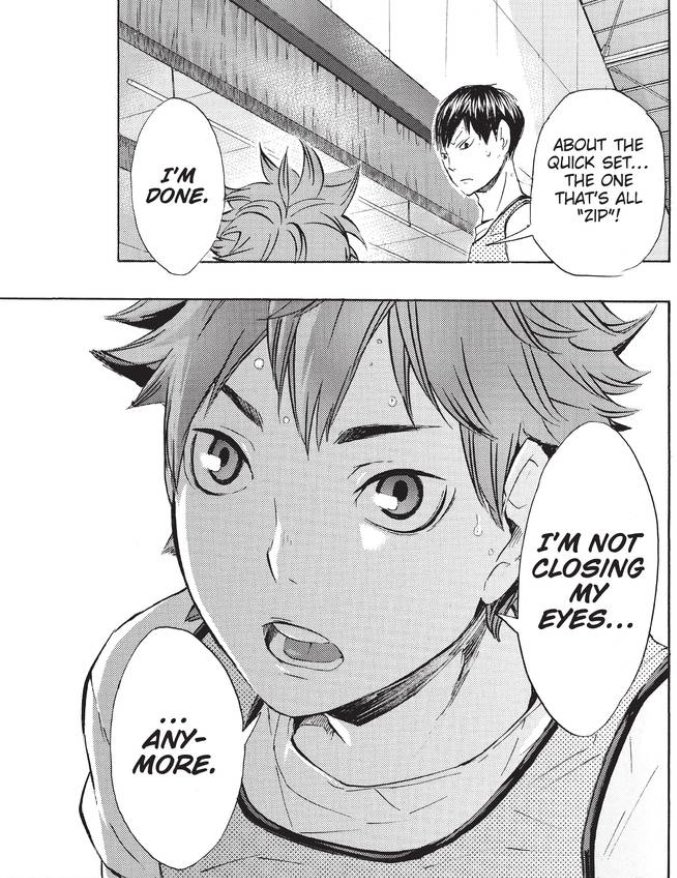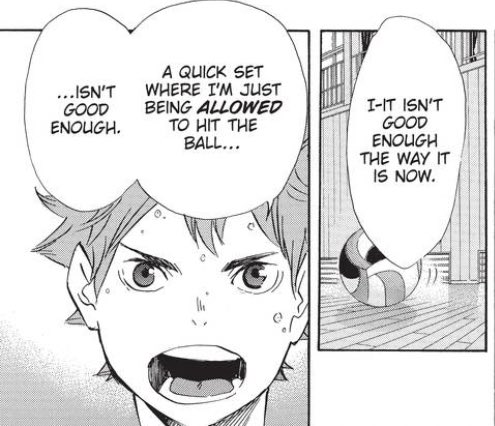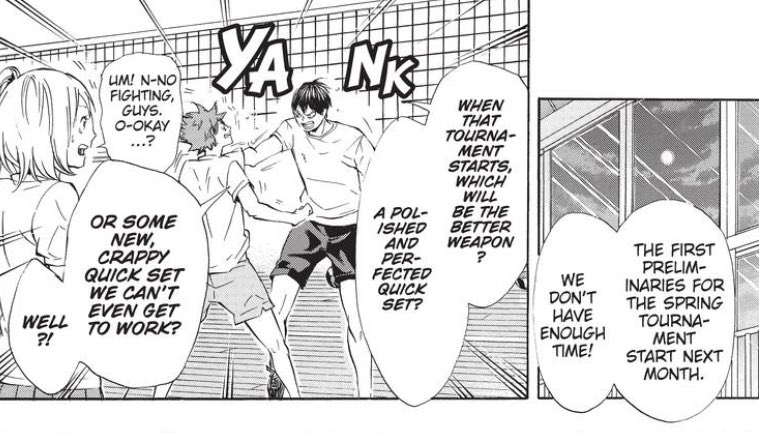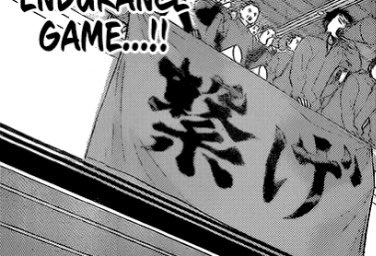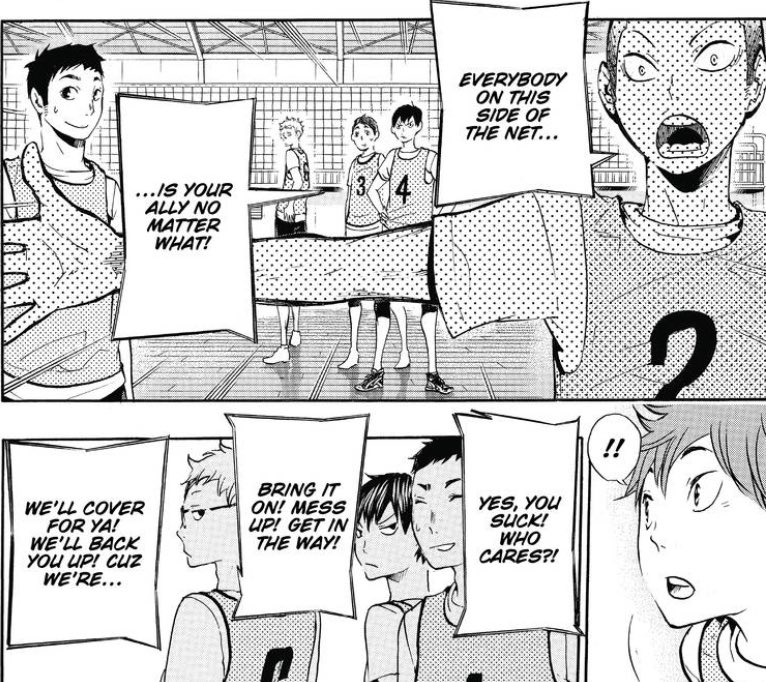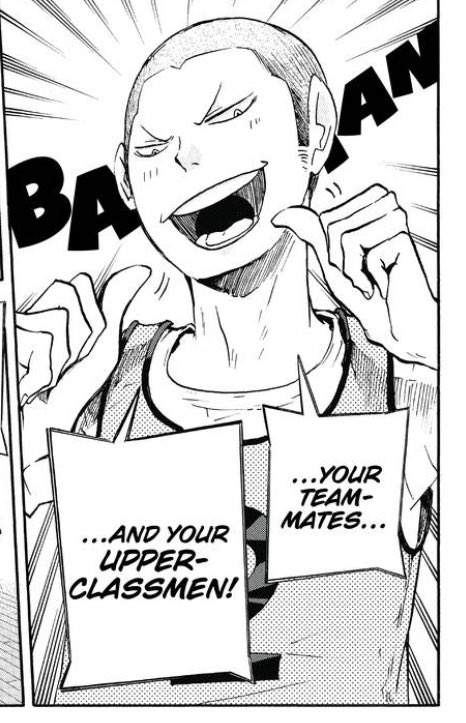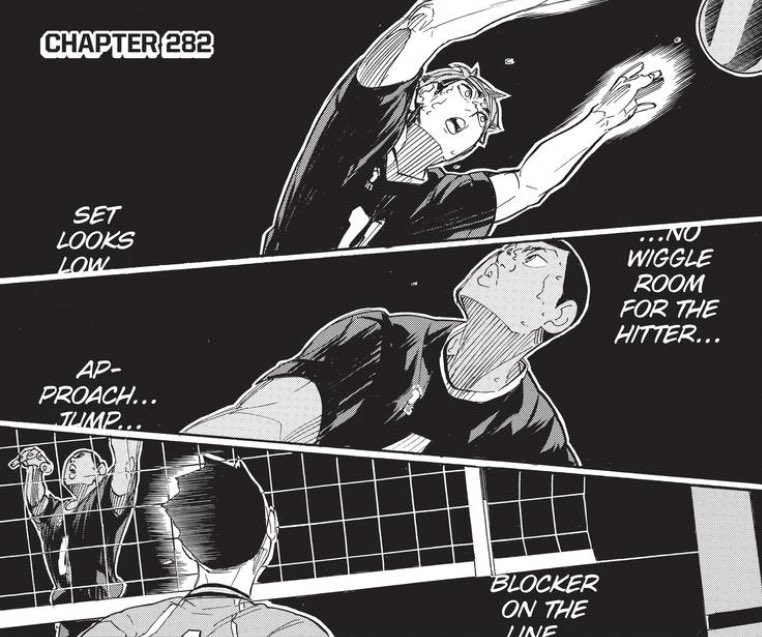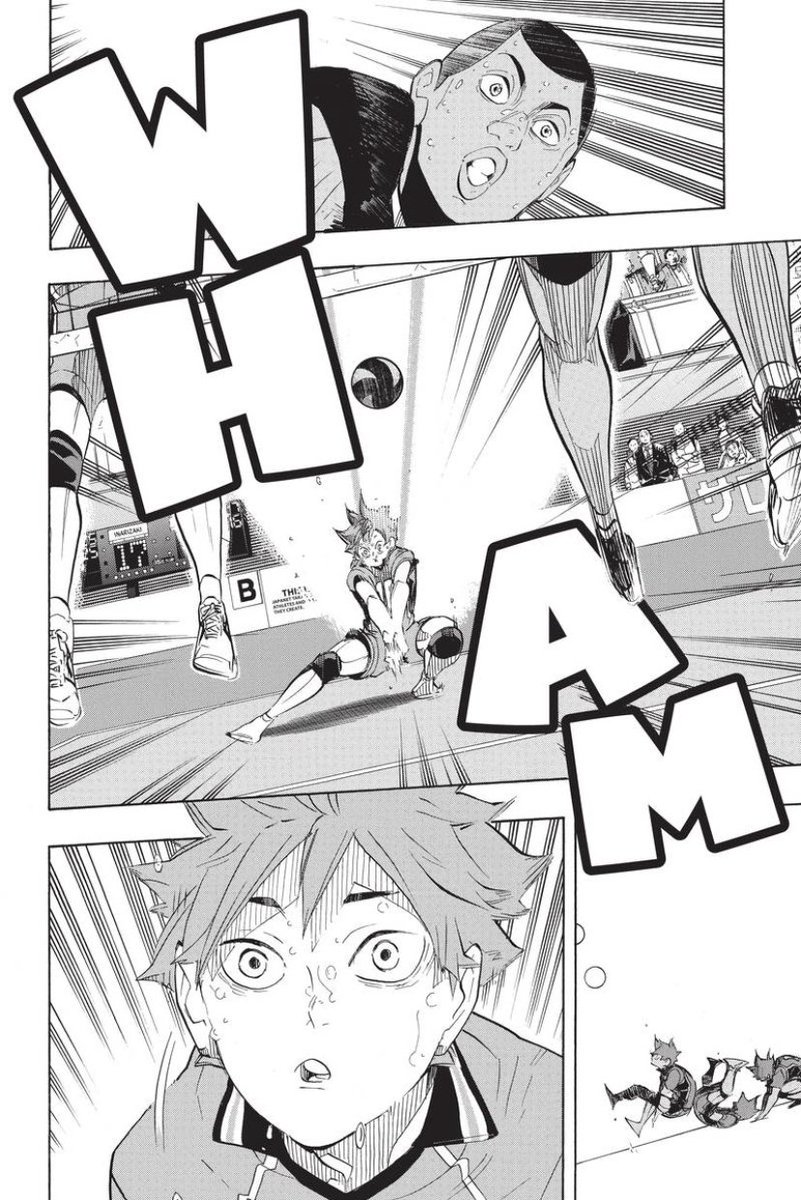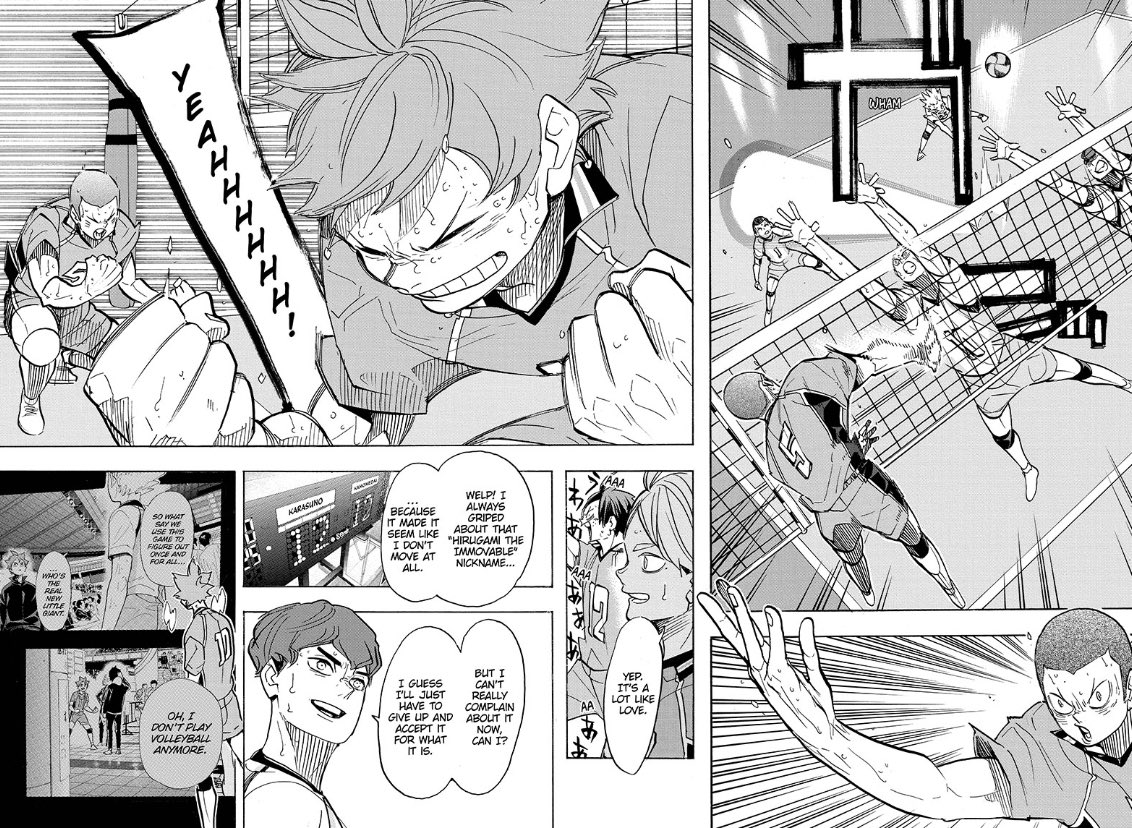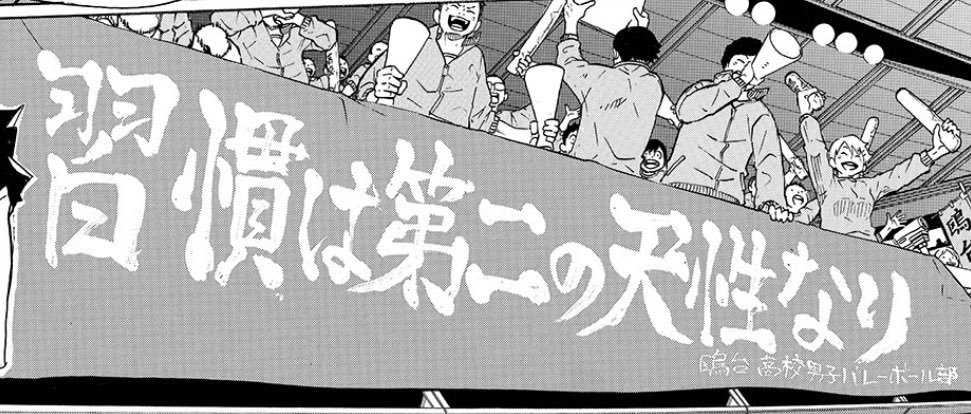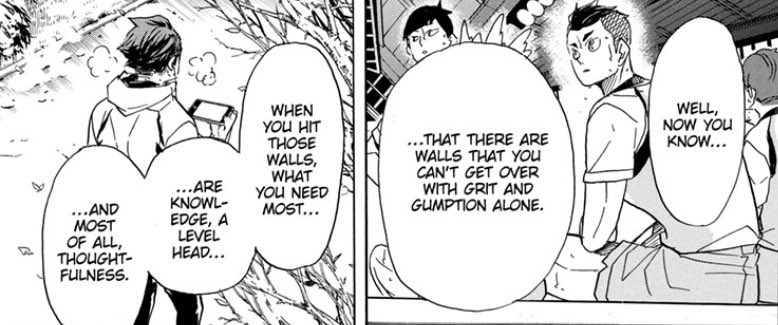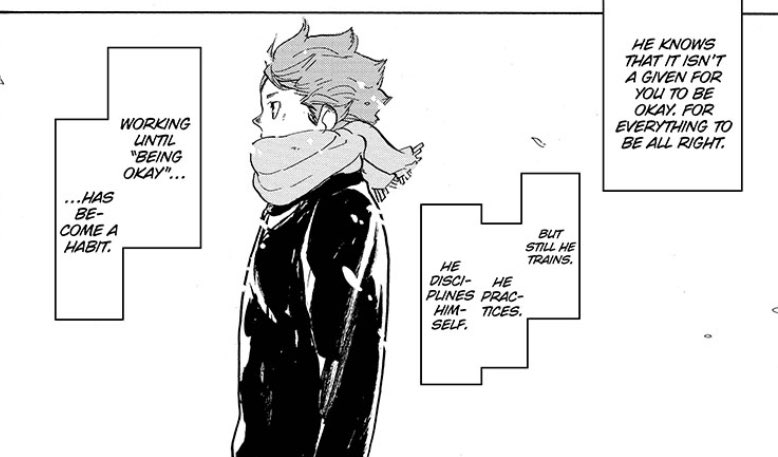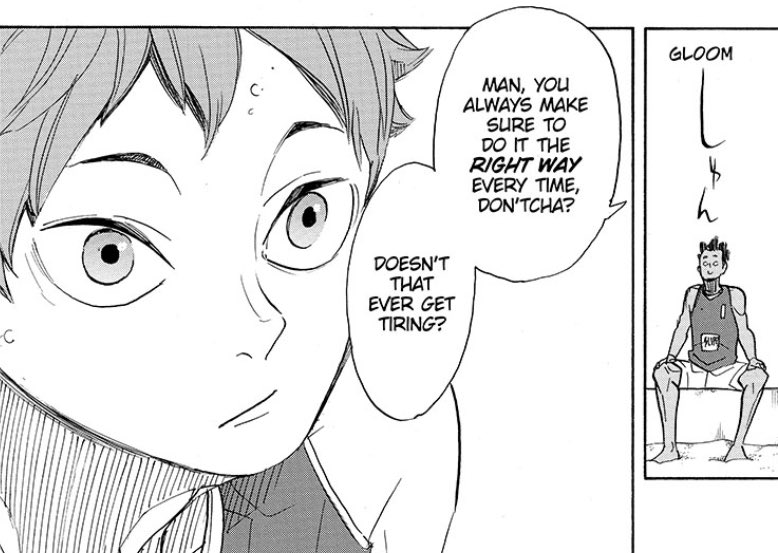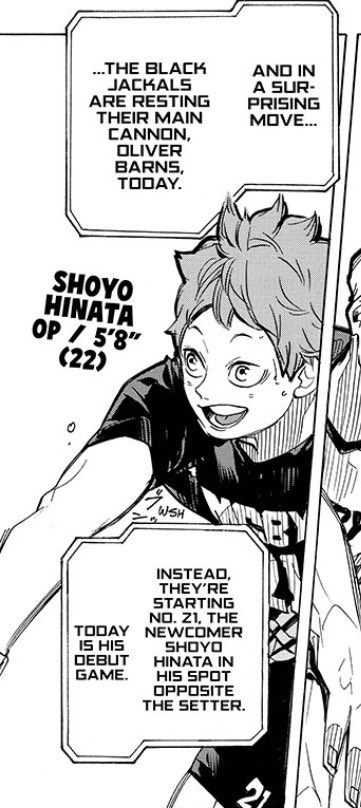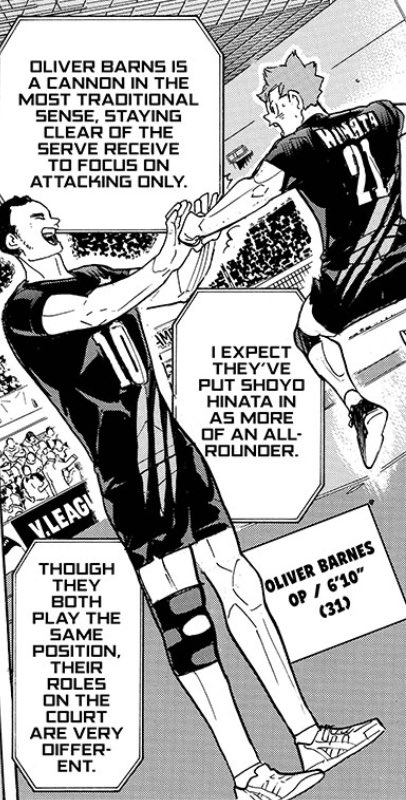lessons from failure: the goal to the starting line
throughout the series, hinata experiences his fair share of failure, which he uses as an opportunity to seek out a new perspective that will allow him to gain strength to achieve victory.
throughout the series, hinata experiences his fair share of failure, which he uses as an opportunity to seek out a new perspective that will allow him to gain strength to achieve victory.
the monstrous growth he exhibits during nationals arc is molded by these lessons from failure that allowed him to fight to the most of his abilities. when he hits his limit, however, it meant another lesson-perhaps the final one-for him to learn before he climbs to the top.
these lessons that hinata had acquired are shown in full display through the *banners* of each of their opponent& #39;s respective schools from nationals. a victory over that opponent represented hinata’s understanding of the motto that he learned from a previous failure.
karasuno has three victories-against tsubakihara, inarizaki, nekoma-with three mottos that represented the collection of lessons that contributed to hinata’s growth up until the end of nationals arc.
tsubakihara& #39;s motto was "even small streams form strong rivers." the little things will ultimately produce great results. and nothing could better represent this motto more than hinata& #39;s ball boy arc.
hinata& #39;s failure that urged him to learn this lesson was his inability to move ahead with kageyama, which illustrates how lacking his abilities still are. as a ball boy, he is limited to mostly observing from the sidelines, but that itself is enough.
the change in perspective allowed him to process incoming information from the court he was barred from stepping in. the most minute details, which had seemed so insignificant to him before, now holds his careful attention.
hinata gathers data on things such as spiker’s habits and the defense’s positions and analyzes them in order to determine the next course of action. these little details combined with his instincts eventually develop into this “great result”: intuition.
additionally, hinata builds up his basic skills, especially on receiving. these, combined with his intuition allowed hinata to contribute to countless plays in their matches at nationals, sometimes even in dire moments, which advanced karasuno point by point towards victory.
then we have inarizaki& #39;s motto, "we don& #39;t need things like memories." no matter what happened in the past, one must rise to the challenge of today. it brings to mind karasuno& #39;s matches with seijoh with karasuno garnering different results in every match they played against them.
their loss during inter-high qualifiers may have been as a team, but it is also a personal failure on hinata& #39;s (&kags) part. the freak quick that has worked so many times was shut down in the last moment of the game, contrasting their practice match where the quick itself won it.
past successes usually do not reflect themselves in the future so long as one refuses to evolve with the ever-changing times, and hinata learns that harshly after that loss from seijoh. it was this loss that persuaded him to try another angle for this weapon.
his decision to open his eyes for the quick follows an understandable train of logic as he knows more than anyone that the quick is not indomitable. however, the counterargument for that decision remains valid as well-
there’s no time to learn a new quick before the spring high prelims start, and the quick they have, albeit faulty after a certain extent, still works. so why take the risk with modifying/creating a new quick that is not guaranteed to succeed or even exist?
that is the challenge hinata is presented with and the reason why he wants to try something new. he knows he can’t rely on the success of the previous quick when it could be so much more than what it currently is.
hinata saw a room for improvement in their quick and seized the opportunity, facing the problem in the present rather than ride the coattails of the past.
lastly, we have nekoma’s motto: “connect.” to its very core definition, to “connect” is to join together or link. one connects with teammates, with their plays, with the atmosphere of the game.
connecting essentially states that volleyball can’t be played alone. it’s a lesson hinata continuously learns throughout the whole series spurred by his loss to kageyama all the way back from middle school.
the loss changes hinata’s attitude about seeking help as he starts to practice with players with experience in volleyball. even so, they were not /his/ teammates. we can write off hinata’s failure to form a team during middle school as an unfortunate circumstance.
however, when he joins karasuno, hinata starts to learn what connecting truly means. to connect is to trust or to have faith in another. hinata displays this faith with kageyama, trusting in him to bring the ball to him no matter what,
and also with the rest of the team, who reassured him that they’ll cover for his inexperience while he charges ahead and play to the best of his strength.
to connect is also to understand that every play is significant. it involves thinking of “what’s next.” and a good example of it is hinata reading through the blocks and positioning himself in order to receive the spike.
to connect is to understand the role one plays. when hinata proudly accepts his title as the strongest decoy during the kamomedai match, it feels like he comes to a full understanding of “connecting.”
hinata’s points are his teammates’ points, and his teammates’ points are hinata’s points. the points hinata gets when spiking are equal to the points where he plays decoy for his teammates. to connect is to combine their strengths in order to reach a common goal- victory.
so what about kamomedai, the school that karasuno ultimately lost to?
kamomedai’s motto is “habit is second nature.” it’s a philosophy that calls for rituals, discipline, and a healthy mindset. it’s also a lesson that hinata has yet to learn, represented by his and karasuno’s inability to overcome kamomedai’s strength, thus resulting in their loss.
hinata’s failure to stand on court with his teammates until the very end due to his fever makes this loss more significant and personal to him as he discovers his own limits outside of the team’s collective strength.
up to that point, hinata has always pushed himself without regard to his limit with instances where he has to even be yelled at to take a break. with this loss, hinata is heavily reminded of his shortcomings in volleyball- that there is still more to learn outside of the court.
volleyball is not just within those 18x9 meter lines. it is also within self-maintenance and knowledge of one’s own limits. volleyball is a continuous process of self-discipline and good habits that are as automatic and as natural as the hunger for the game.
it brings to mind tashiro’s (karasuno’s former captain) words: “chance favors the prepared mind.” the narrative insinuates that hinata’s lack of preparation (through good habits) subsequently resulted in the loss of his chance at victory.
additionally, it seems equally fitting for hinata to also lose to a team that heavily prioritizes task focus- a habit that develops a mindset for success, further giving greater gravity to the circumstance of this loss.
as the plot shifts forward a few years after the loss to kamomedai, we see hinata continually honing all these lessons after high school.
he rose to the challenge by training in beach volleyball in brazil to improve his indoor volleyball skills. he is reminded of the importance of connecting while playing with oikawa and heitor. he builds up his skills in the sand in order to level up his decoy role.
through lucio’s and heitor’s remarks, we see that hinata has been constantly striving to be “okay” and practicing good habits and self-discipline, which has been so ingrained in him like an involuntary action such as breathing.
it is the amalgamation of all these lessons that brought hinata to his current position as a wing spiker of the msby black jackals as he faces his rival in a showdown at the top, fulfilling a promise he made years ago.
will these lessons lead him to victory? maybe, maybe not. but at least hinata is finally at the starting line.
(holy crap if you made it all the way here, thank u for reading im sorry it was very lengthy)

 Read on Twitter
Read on Twitter